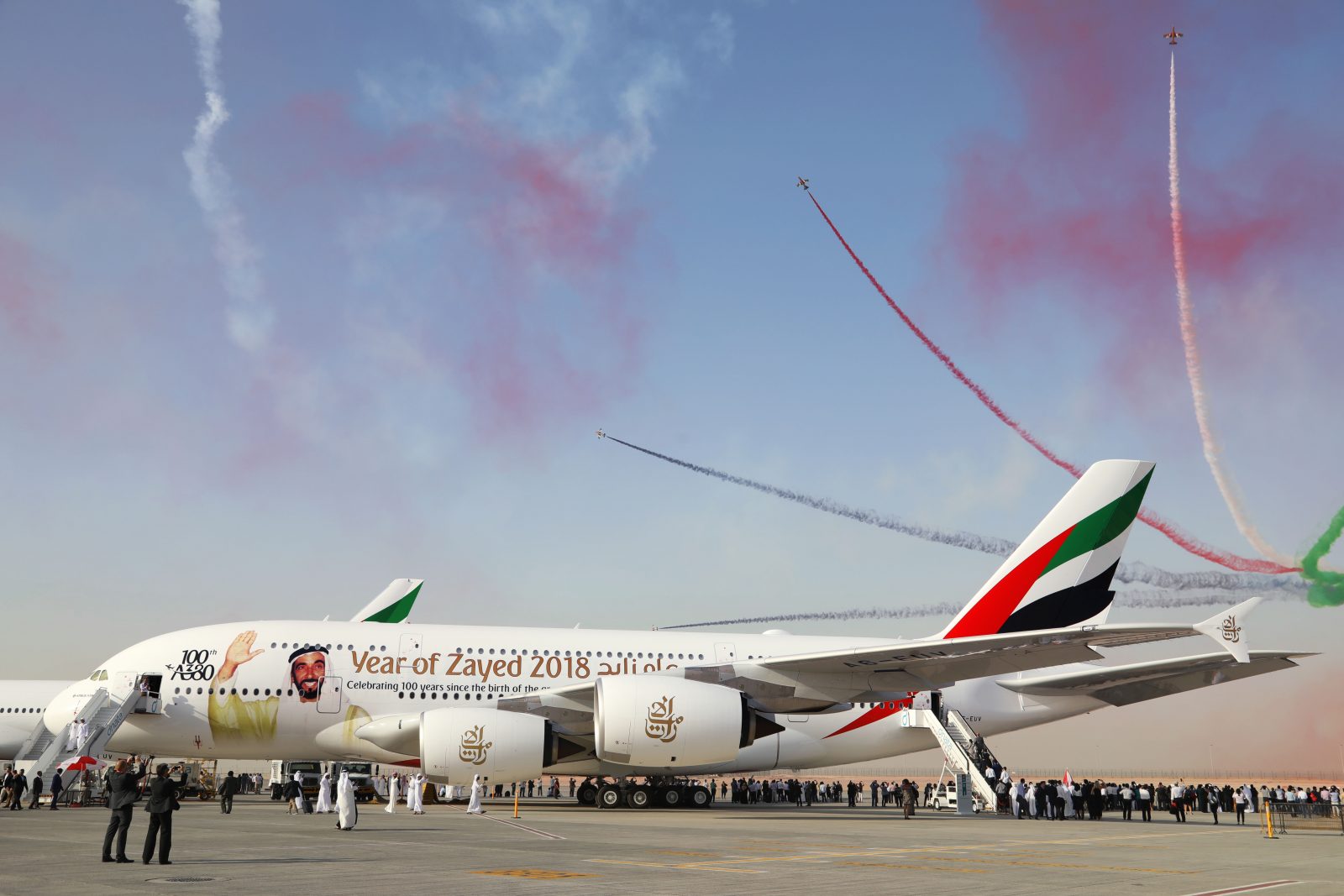
It was set to be one of the most exciting and anticipated aircraft deals of the year. The 2017 Dubai Airshow held earlier this month, was expected to be the stage where the Dubai-based Emirates Airline announced a huge order for 36 brand new Airbus A380 superjumbos.
Instead, the deal valued at around $16 billion USD spectacularly collapsed at the very last minute. Sources claim the UAE government who own Emirates through an investment company wanted assurances over the resale value of the A380 and a commitment from Airbus to continue production for at least 10 years.
As the very future of the A380 project hangs in the balance, those promises just couldn’t be made by departing Airbus sales chief, John Leahy. Instead, Emirates announced it had signed an agreement with rival U.S. aircraft manufacturer, Boeing for 40 787-10 Dreamliners. The deal is worth $15.1 billion at list value.
An unnamed source cited by Reuters, claims “there is a worrying breakdown of the relationship between Airbus and Emirates.” The insider continued: “Dubai does not want to be taken for granted.”
Now, it appears the UAE and Dubai governments have once again signalled that their relationship with European aircraft manufacturer, Airbus is anything but on good terms.
In a statement, the UAE’s ambassador to the United States, Yousef Al Otaiba has said: “US companies remain the preferred supplier for UAE commercial and military aviation requirements.”

To you and me, that means Boeing and Lockheed Martin. Where the future of European manufacturer, Airbus sits in all of this remains unclear.
Al Otaiba pointed out that US companies were the “big winners at the 2017 Dubai Airshow” with over $44 billion in new orders being made. That includes a $27 billion order from UAE low-cost airline, flydubai for 225 Boeing 737MAX aircraft. A further $1.6 billion is being spent on upgrading the UAE’s Air Forces fleet with F-16 “Block 60” fighter jets by Lockheed Martin.
And if there was any further doubt, Al Otaiba explained: “The UAE’s airlines rely on Boeing aeroplanes to meet the growing demand for air travel in the region, and between the region and Asia, Africa, Europe and North America.”

However, it might be worth putting this into some context. Al Otaiba is the UAE’s Ambassador to the United States and it’s his job to try and promote trade between the two countries. It’s therefore unsurprising that he would focus on the UAE’s relationship with U.S. companies.
Remember also, there are plenty of lobby groups in the United States who claim Emirates and fellow UAE airline, Etihad Airways receive unfair government subsidies. They’ve been campaigning for a clampdown on flights Persian Gulf airlines that fly to the United States – something that the UAE is trying to avoid at all costs.
The oil-rich state’s Ambassador instead argues that rather than jeopardizing U.S. jobs, airlines like Emirates are actually supporting American jobs and boosting growth. In his latest speech, Al Otaiba said his country was supporting “hundreds of thousands” of U.S. jobs.
Mateusz Maszczynski honed his skills as an international flight attendant at the most prominent airline in the Middle East and has been flying ever since... most recently for a well known European airline. Matt is passionate about the aviation industry and has become an expert in passenger experience and human-centric stories. Always keeping an ear close to the ground, Matt's industry insights, analysis and news coverage is frequently relied upon by some of the biggest names in journalism.







